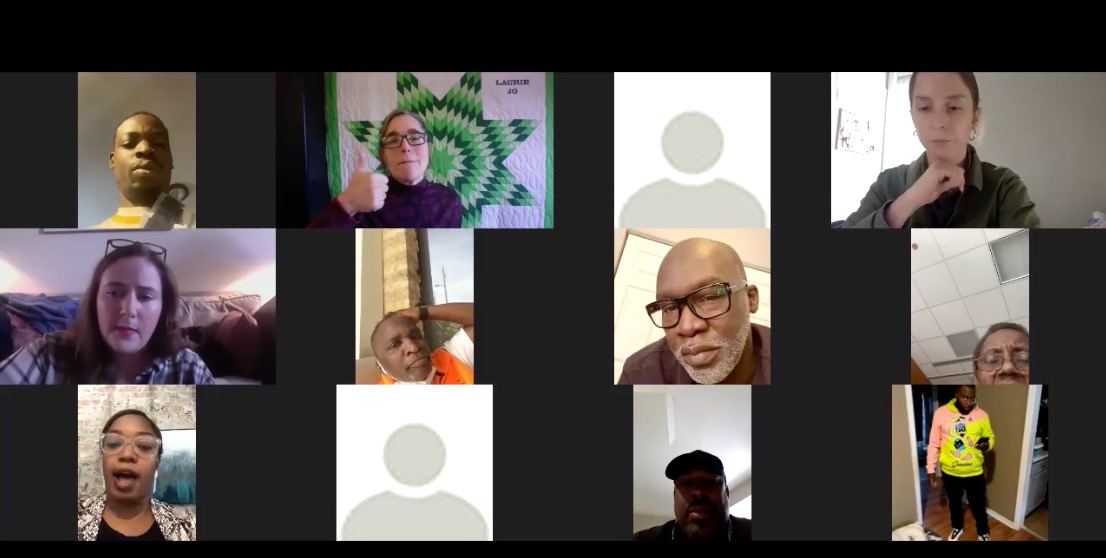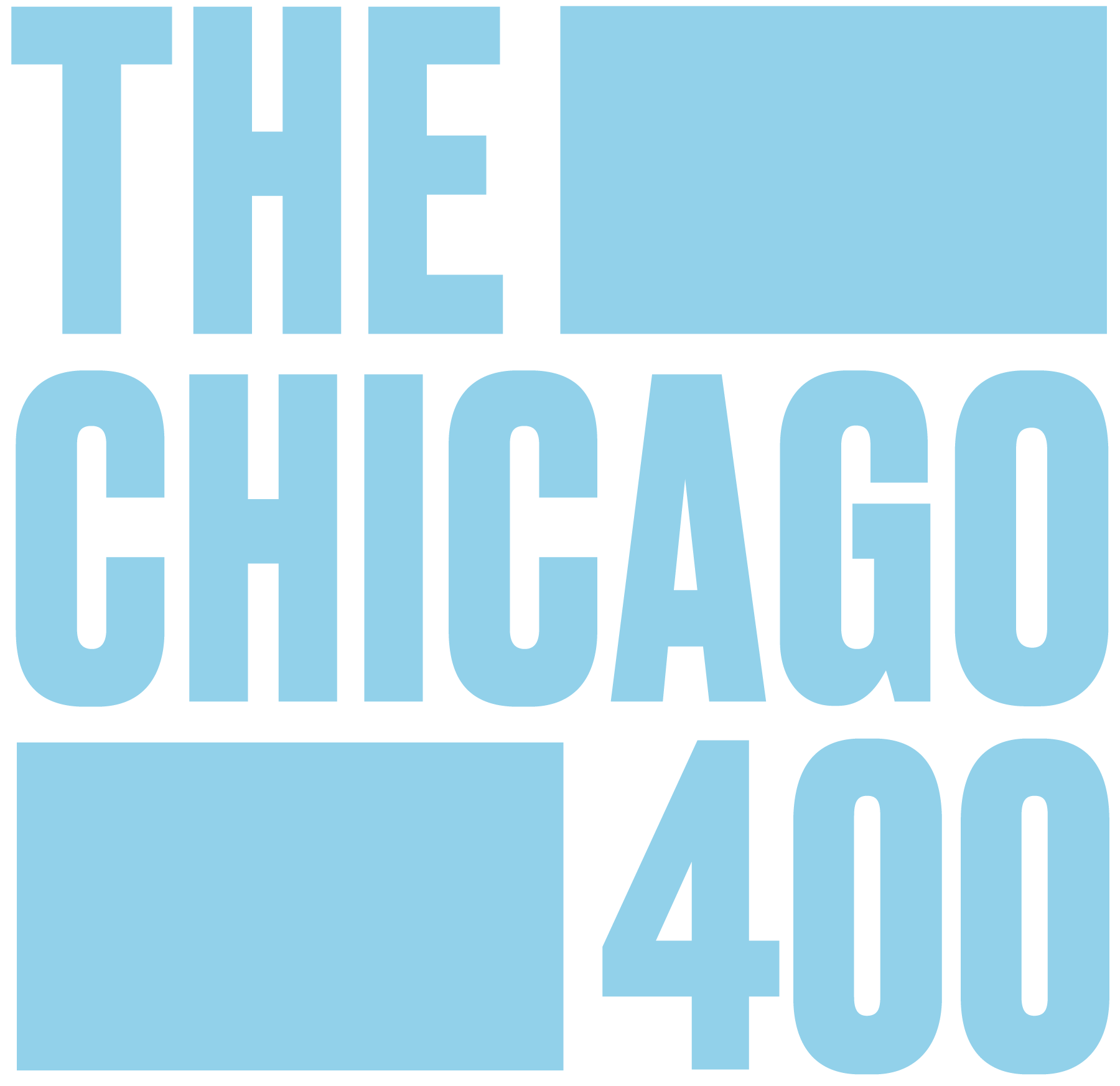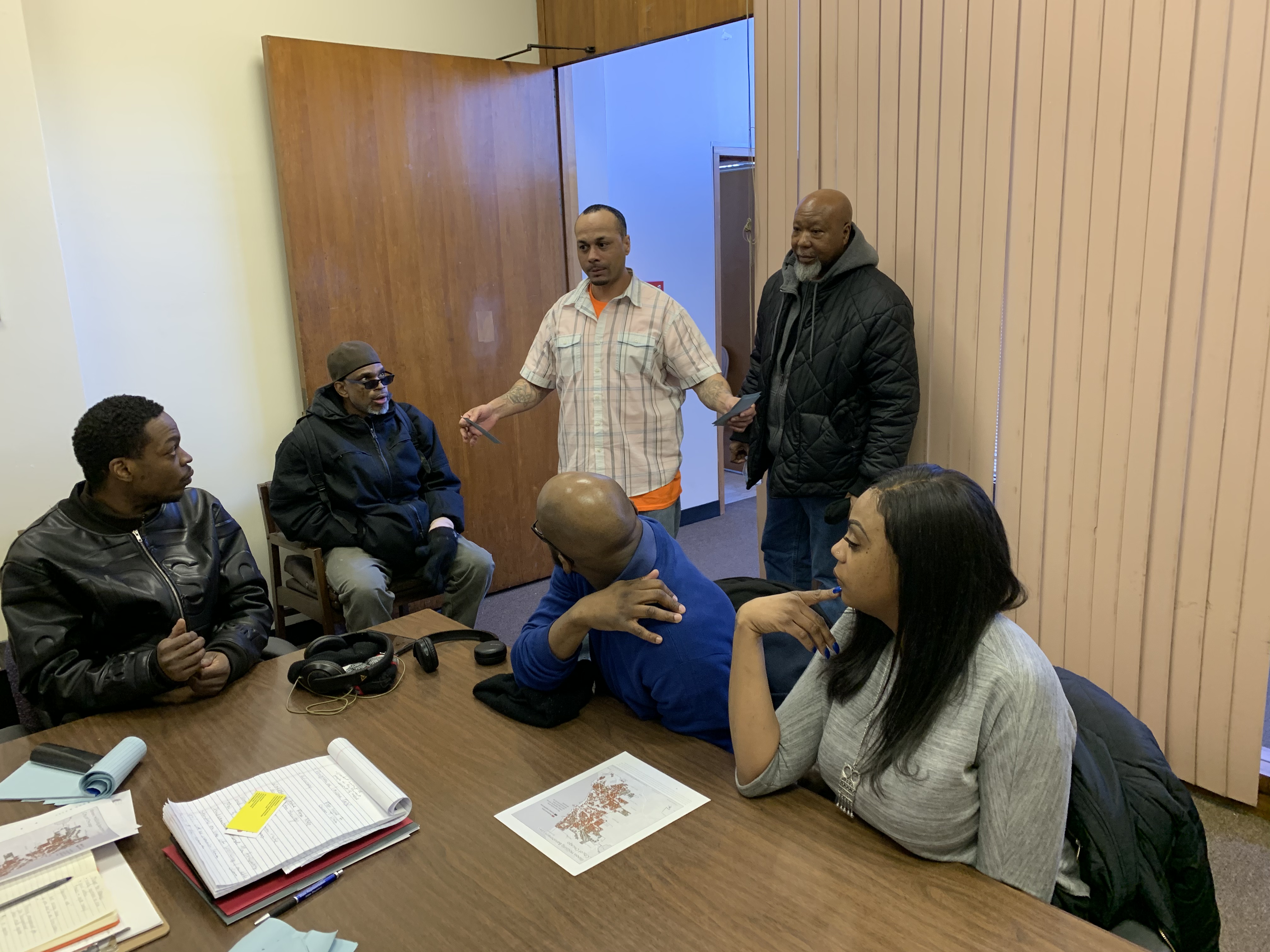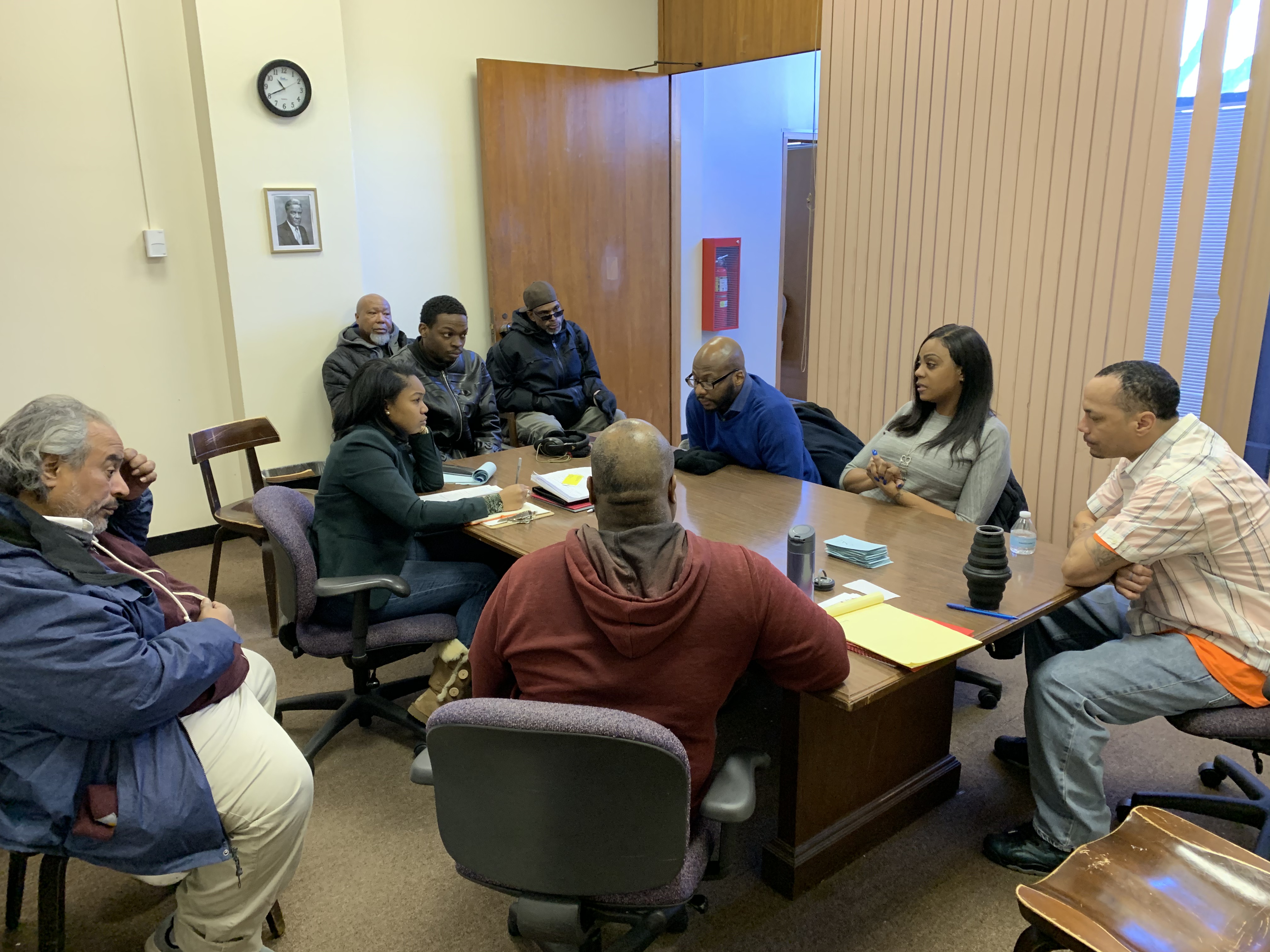Legislation
Reduce and repeal registries, decriminalize housing, and let people live in the homes they have available
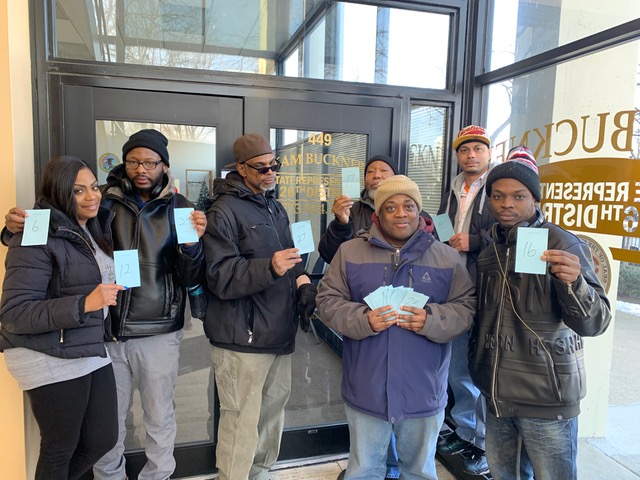
Critical action! Please stand up and support SB 2158 / HB 5251
See fact sheet.
Sign up for announcements or volunteer.
For more info, reach out to info@chicago400.net.
We are asking lawmakers to address the acute crisis caused by public conviction registries, housing banishment laws, weekly registration, and the failure to register charges that follow from these laws.
REDUCE THE FOOTPRINT OF PUBLIC CONVICTION REGISTRIES
• Illinois has 6 public conviction registries which require Illinois police to conduct some 50,000 re-registrations a year.
• Public conviction registries force people with past convictions to return to police stations repeatedly after they served their time. They play no role in community safety.
• Illinois has a convoluted maze of registry laws and restrictions. There are onerous requirements with different time frames. They are too confusing for individuals to decipher. Social service agencies, non-profits, and even legislators don't know all these restrictions. Even police frequently get them wrong.
HOUSING FIRST
• Housing is a fundamental need and the foundation for a positive life.
• Housing banishment laws are discredited policies that permanently exclude people with past convictions listed on registries from most non-rural housing for life.
CRISIS FOR FAMILIES
• These laws force hundreds of Chicagoans into homelessness (80% of those made homeless are Black men on the west and south sides).
• Once homeless, people have to re-register in person weekly at Chicago Police or their local police departments in addition to their regular registration requirements.
• Weekly registration is untenable and is itself an engine of re-incarceration.
• Most Chicago 400 members have been forced out of good homes and successful lives when the ever-changing restriction zones rendered their housing “illegal.”
• Most Chicago 400 members have already gotten a new felony conviction for a hypertechnicality of housing and registry laws, simply because people have nowhere to live. These are "housing crimes."
BREAKDOWN FOR SYSTEMS
• The state of Illinois wastes enormous law enforcement resources on registration.
• For the past 15 years, these laws have forced an average of 1,400 people to stay in prison past their release dates. People could not get out of prison without housing, but they were banished from housing. Now, there are federal injunctions to allow people to leave prison. But there is still no housing.
• Chicago detectives conduct 23,000 re-registrations of 450 homeless people per year alone.
SENSELESS HARM
• Many people have safe and stable housing, but they are forced out because the residency restriction "zones" always change.
• If we banish people from their own housing, they still live somewhere--in their cars, on CTA trains, buses, emergency rooms, airports, etc. They are still our neighbors.
• Then after we made them homeless, they have to engage with homeless services and other service providers to find new housing, when they were doing fine on their own.
TWO NO-COST SOLUTIONS TO THESE PREVENTABLE PROBLEMS:
1. Greatly open up housing in Illinois by reducing housing banishment laws from 500 feet to 250 feet.
This change will enable people to live in the housing they have or to find homes. And once people have established safe and stable housing, they won't be forced out when the ever-changing restriction zones change.
2. Allow homeless people to register at police annually or quarterly like housed people do, instead of weekly, to bring housed and homeless people into equity.
Like all people on registries, people who are homeless will still be additionally required to report in person any changes in residency, travel, jobs, or education and to register any location they stay 3 days per year consecutively.
Weekly registration applies to people listed on murder, violent offenses against youth, and sex offense registries.
ALLEVIATE THE CRIMINALIZATION OF HOMELESSNESS:
• Many people are getting 10-year extensions for missing one week, even when they were hospitalized, or for being 3 days late because they had to go to work and could not afford to lose their jobs.
• Most people who are homeless have already been sent to prison for some failure to comply with the complex housing and registry laws.
RECENT PRESS
Bolts: "How Illinois Housing Banishment Laws Push People into Homelessness and Prison: Organizers with past sex offense confivitons are championing a bill in the state legislature that could end the cycle and roll back residency restrictions" - by Shawn Mulcahy
WBEZ: "Lightfoot Challengers Pledge Action on Criminal Registries" - by Shannon Heffernan
WBEZ: "People with sex and gun convictions are required to register with police. CPD can’t keep up" - by Shannon Heffernan
WGLT: "Conviction Registry Rules Cause Racial Disparities" - by Edith Brady-Lunny
WBEZ: "Pandemic Brings New Urgency To The Problem Of Illinois Holding Prisoners Long After They’ve Served Their Time" - by Jessica Pupovac
The Southern: "Hundreds of Southern Illinoisans are required to register. But are we any safer?" - by Molly Parker
Daily Northwestern: "The Chicago 400 Highlight Need to Reform Registry and Banishment Laws"
North By Northwestern: "Chicago 400 Alliance shares the difficulty of finding housing while on a conviction registry"
SEE MORE ON THE RACIAL DISPARITIES AND OTHER DAMAGE CAUSE BY THESE LAWS:
Chicago 400 Report on Residency Restrictions [July 2020]
Letter from Chicago 400 on need for law enforcement accountability [Sept 2020]
Chicago 400 Alliance
The Chicago 400 are the 400-500 people who have to register weekly at Chicago police, simply because we are homeless. We are organizing to change the state laws so we can move on with our lives and take care of their families. The Chicago 400 Alliance are the groups and individuals working to support the Chicago 400 including:
• Above and Beyond Family Recovery Center
• Chicago Alliance Against Sexual Exploitation (CAASE)
• Chicago Alliance Against Political and Racist Repression (CAARPR)
• Housing Action Illinois
• Illinois Justice Project
• Kolbe House Jail Ministry
• Law Office of the Cook County Public Defender
• Legal Council for Health Justice
• Shriver Center on Poverty Law
• Safer Foundation
• Treatment Alternatives for Safe Communities (TASC)
Fact sheet here.
Please take this one-minute action!
Sign up for announcements or volunteer.
Reach out to info@chicago400.net for more info.
Thank you so much for your time and consideration!
